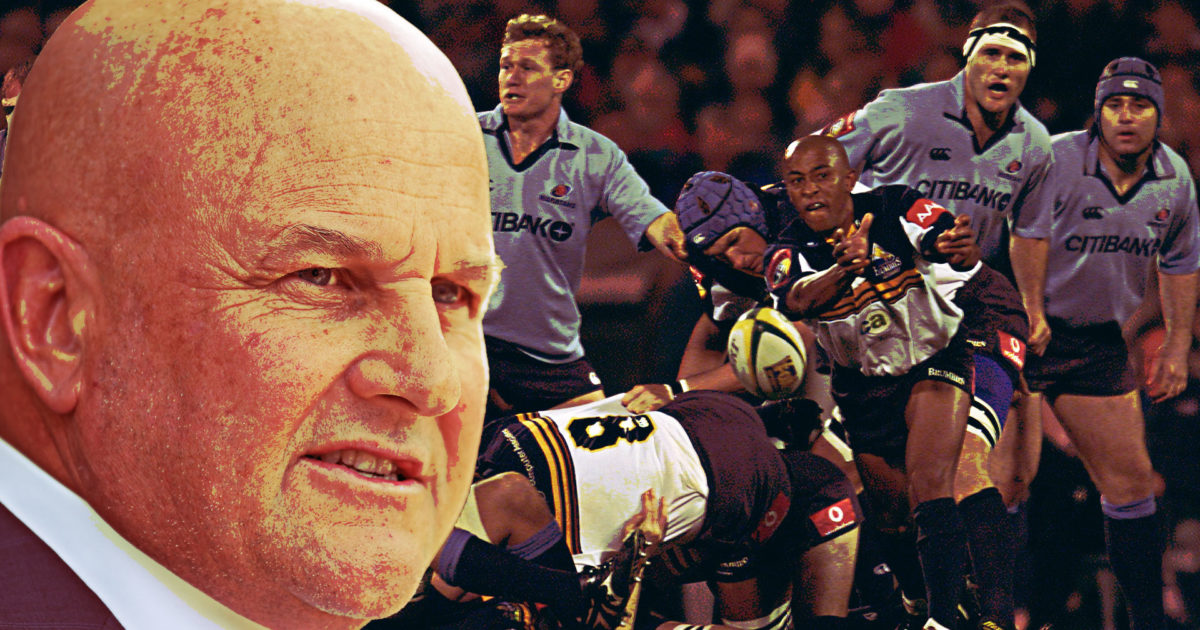How Rugby Australia's acting-CEO believes the sport can reclaim its status in a crowded market

Since the glory days of the early 2000s, many have tried to revive Australian rugby yet all have failed. With plenty of challenges still to overcome, there’s growing pressure on Rugby Australia with the recent short-term appointment of rugby-man Rob Clarke.
Clarke was announced as Raelene Castle’s temporary successor on Wednesday, bringing plenty of experience into his role as interim CEO on the back of years of rugby administration at the then-named ARU, as well as with the Brumbies and Rebels.
He fronted the media the day after being appointed, discussing a forward-thinking outlook on how he plans to fix the 15-man code.
“It’s a new day. The past is the past, and I don’t think that there’s any advantage dwelling on the past. My focus is the task that the board’s given me over the time that I’ll be sitting in the chair,” Clarke told reporters at a press conference on Thursday.
“There’s a lot to be done, the game has gone through a very challenging period. The first item on the agenda is to get ourselves playing rugby around the country again.
“I’m delighted with the plans that have been put in place by the team here, we’re well-positioned for when the restrictions end that will enable us to get rugby played at both a community level and a professional level as soon as we possibly can.”
A lack of passion, tribalism and support has plagued Australian rugby in years gone by, with state-of-the-art stadiums such as Suncorp and Bankwest left mostly empty by faltering crowd numbers.
After three rounds of Super Rugby this year, the average attendance at Australian home matches was just 7,324, which was nearly 4,000 less than the average across the entirety of the 2019 season.
Ultimately, fans enjoy seeing their team competing and winning trophies, and now after years of struggling against foreign opposition, it’s time for Australian Super sides to stand up in domestic derbies and draw their fans back to rugby.
What exactly that domestic competition may look like is up in the air at the moment, with Clarke expecting a decision to be made within the next couple of weeks as they aim for a July return.
“Assuming that restrictions are lifted as we hope in the next week or so, we would aim to be playing – if at all possible – in July, with training starting in June. But, of course, it’s all tied to the restrictions.”
“We will come up with some competition models and structures that think will work well for Australia. We will then work with our SANZAAR partners, as they’re indeed doing now, in working at looking at it from their own point of view, and talk that through.
“Then, of course, we need to bring the broadcasters along that journey with us because they have some very clear objectives out of it, and the ultimate goal is to bring those two together.”
While revisiting a trans-Tasman competition in the future could be a possibility, it’s time for Rugby Australia to experiment and establish their own identity and tribalism.
https://www.instagram.com/p/B_-1pDmArN1/
Rugby in this country needs to become Australia’s family sport for one, as it builds off the uniting rugby culture seen at the grassroots level.
Club rugby has also shown us that tribalism is everything in sport and needs to be prioritised in the professional game. Rugby Australia needs to figure out how this support can be reignited and established through rivalries driven by fanbases’ love of their State.
We’d need to see rugby from coast to coast to make the most of this – enter the Western Force.
Clarke commented on the potential return of the Perth-based franchise, with many still frustrated by their controversial exit from Super Rugby in 2017.
The Force have since developed their own identity, becoming a cornerstone of Western Australian sport as they continue to invest in their relationship with the community.
They’ve also tasted domestic success in the National Rugby Championship, winning the 2019 Grand Final in emphatic fashion with a 41-3 victory over Canberra Vikings.
One of the most physical test matches you will ever see! The British & Irish Lions went to Pretoria in 2009 to save the series in the second test and put their bodies on the line. The full match will be on RugbyPass this Sunday at 3pm UK time. ??? #Springboks #LionsTour pic.twitter.com/cGvyVVwetZ
— RugbyPass (@RugbyPass) May 7, 2020
Perth hosted the first Bledisloe Cup test between the Wallabies and All Blacks last year, which Australia won in a record-setting 47-26 performance. With 61,241 spectators in attendance, Rugby Australia needs to tap into what is still a thriving rugby market.
“I’ll be reaching out to WA, they’re an important member union and there may well be an opportunity to reengage the Western Force in future competition structures.
“At the end of the day, a national footprint would be a wonderful goal to have. Decisions were made back then for reasons back then, and some of those were driven by financial issues.
“I don’t harbour any grudges; I don’t have any negative feelings towards WA or anybody else. At the end of the day, my focus is really engaging all of our member unions, trying to unify everybody behind the challenges we have.”
As he steps into one of the toughest administrative roles in Australian sport, there’s plenty of expectation hanging on Clarke needing to do the sport justice.
He said that he’s “very confident [that] there is a bright future for the game” but only time will tell if Rob Clarke will truly have a positive impact on the sport Down Under, or if he’ll just become another person to have tried.

























































